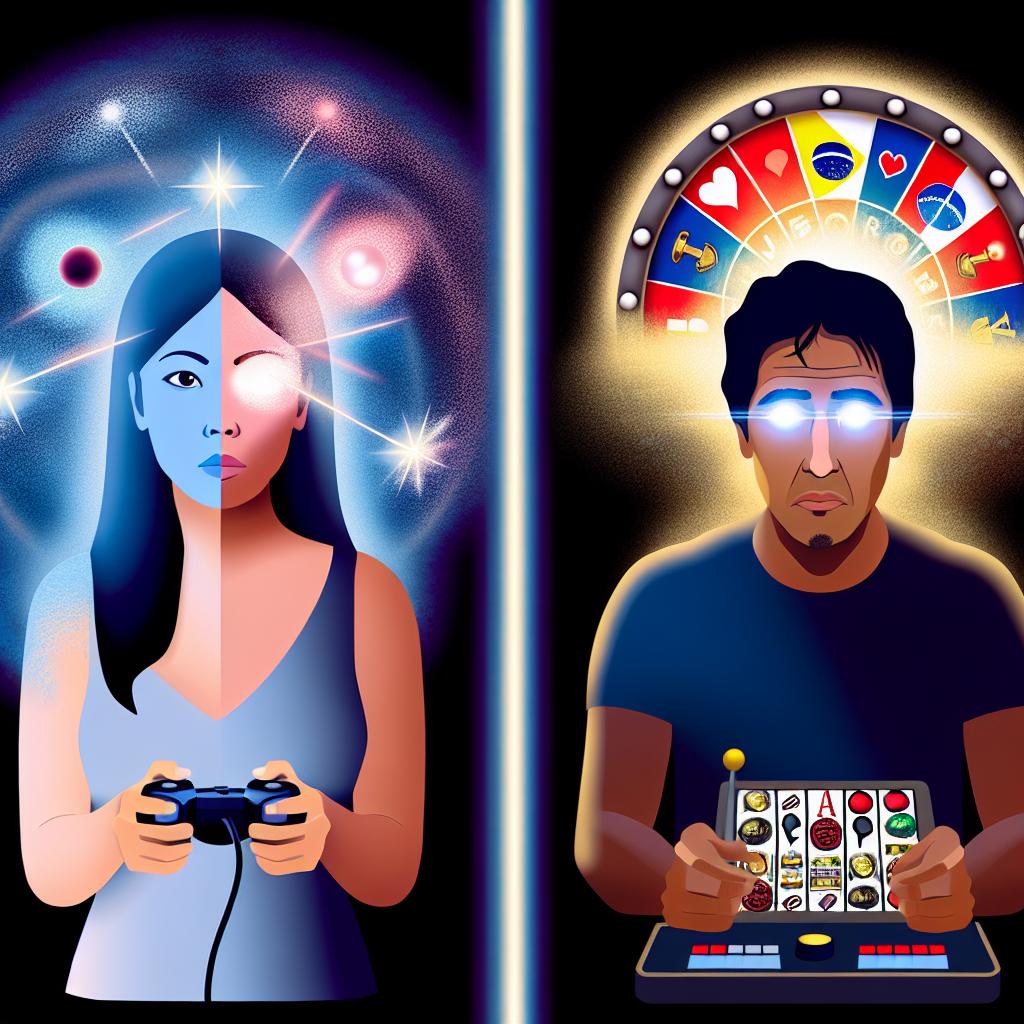Understanding Video Game Addiction and Gambling Addiction
Video game addiction and gambling addiction are behavioral concerns that have become increasingly prominent in discussions among health professionals and the broader public. Despite sharing certain similarities, these addictions contain distinct differences that impact how each is perceived and treated.
Definition and Symptoms
Video Game Addiction is defined by an overwhelming or compulsive engagement with video games, significantly disrupting various aspects of life. According to the World Health Organization, video game addiction is characterized by an impaired ability to control gaming, a heightened emphasis on gaming over other life activities, and persistence in gaming behavior even when it leads to negative outcomes. Common symptoms associated with video game addiction include:
- Preoccupation with gaming: Individuals often think about previous gaming experiences, anticipate the next session, or plan the next gaming opportunity.
- Withdrawal symptoms: Individuals may feel restless, irritable, moody, or sad when not engaged in gaming activities.
- Deception: Individuals may hide or lie about the amount of time spent playing to family and friends.
Gambling Addiction, sometimes referred to as compulsive gambling or gambling disorder, involves ongoing, problematic gambling behaviors. Acknowledged by the American Psychiatric Association, gambling addiction is marked by:
- Increasing need to gamble: Individuals often require larger amounts of money to achieve the desired excitement.
- Restlessness or irritability: Common when attempting to reduce or stop gambling activities.
- Repeated unsuccessful efforts to control gambling: Individuals may struggle to curb or quit gambling despite multiple attempts.
Psychological and Behavioral Impacts
Both video game addiction and gambling addiction can result in profound psychological and behavioral effects. In the context of video game addiction, people often face anxiety, depression, and a sense of isolation. The immersive nature of gaming can draw individuals away from social or family interactions, leading to a reduction in physical activity, which, over time, can contribute to various health concerns like obesity and poor physical fitness.
On the other hand, gambling addiction frequently results in critical financial setbacks, sparking stress and anxiety, which often translate into strained personal relationships. This stress can often compel gamblers to attempt to recover their losses through continued gambling, engendering a destructive spiral that further exacerbates financial and relational difficulties.
Treatment Approaches
Treatment for video game addiction commonly involves therapy methodologies like cognitive-behavioral therapy (CBT). CBT assists individuals in recognizing and altering their gaming behaviors, often helping them to understand the emotional triggers or rewards that their gaming behaviors provide. Additionally, family therapy can be an integral part of the recovery process, aiming to restore interpersonal relationships and create appropriate boundaries with family and friends.
Gambling addiction treatment usually entails a blend of psychotherapy, medication, and peer support networks such as Gamblers Anonymous. Similar to video game addiction, CBT plays a key role, addressing the thoughts and behaviors associated with gambling. Moreover, financial counseling may be crucial for those grappling with debt, helping them to manage finances better.
Subtle Differences in Addictions
Despite stemming from overlapping psychological motivations—such as the opportunity for reward and an escape from reality—these two addictions diverge significantly in their specific stimuli. Video game addiction is mainly driven by the captivating, immersive, and interactivity aspects of gaming. This addiction thrives on the narrative, competition, and sociability within virtual worlds, which can be highly attractive to individuals seeking achievement or belonging.
Conversely, gambling addiction revolves around the excitement and unpredictability associated with monetary rewards and risks. The allure of gambling is often found in the chance to win money, coupled with the tension and suspense characteristic of games of chance. This adrenaline boost can be particularly enticing and difficult to relinquish for those susceptible to gambling addiction.
Conclusions
Video game addiction and gambling addiction are complex disorders that demand comprehensive interventions to understand their psychological and social impacts fully. Education and awareness remain pivotal in tackling these issues, helping to guide those affected toward suitable treatment solutions.
By recognizing both the parallel and distinct facets of these addictions, individuals and healthcare professionals can adopt a more informed approach to prevention and rehabilitation strategies. This understanding is imperative to fostering environments where effective recovery is possible, reducing the personal and societal impact these addictions can have. The collaboration between stakeholders—from families to healthcare systems—enhances support frameworks, empowering individuals on their journey to recovery and fostering healthier communities at large.

